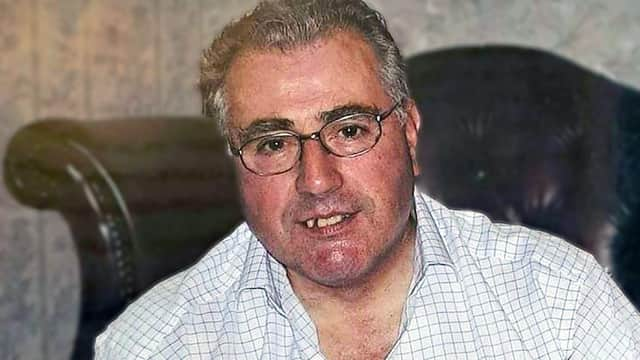Investigator knew of Horizon faults in 2002


Raymond Grant, a former postman who had no legal training before becoming an investigator, gave a performance of astonishing arrogance when he appeared before the Public Inquiry. He provided evidence only under threat of legal action if he continued to ignore its proceedings.
He said that he had only “glanced” at documents sent to him in advance of his appearance as a witness and failed to provide a substantial witness statement in response to questions because of “other priorities”.
Advertisement
Advertisement
Mr Grant – who was made redundant by the Post Office in 2009, in the midst of the North Uist investigation – only responded to the inquiry’s requests to provide evidence when Sheriff’s Officers appeared at his door. He now works for the Salvation Army in Perth.
Questioned by lead Counsel to the inquiry, Jason Beer, Mr Grant repeatedly maintained that at the time of the investigation into Mr Quarm, he was unaware of any concerns about the reliability of the Horizon computer system. “I was not aware of any operational difficulties with Horizon”, he said.
Again asked by Mr Beer: “Were there any previous cases you were involved in, in which issues or errors over Horizon were raised?”, Mr Grant replied: “I don’t recall any”.
However he was then confronted with a note he wrote in 2002 in which he complained to Post Office superiors that “people on the Help Desk are telling people that the Horizon system is faulty”.
Advertisement
Advertisement
Asked why he was concerned about this, Mr Grant replied: “It was bringing the integrity of the Horizon system into question at a very early stage of its inception”.
Mr Beer then challenged him: “You seem to be saying – the problem isn’t that there might be glitches in the system; the problem is that someone is saying that there might be glitches in the system”. Mr Grant replied: “I can see where you’re coming from”.
Earlier in his evidence, Mr Grant said: “I still think Mr Quarm had a role to play in the loss of this money”. Mr Beer observed drily: “Despite the verdict of the High Court of Justiciary in Scotland”. He added: “Is that among the reasons you did not regard this inquiry as a priority?”.
Mr Grant was pressed on why he had not sought supporting evidence from Fujitsu, the suppliers of the Horizon system, as had happened in some other cases. He agreed that was “something that would be a reasonable thing to do” but by then he had been taken out of the Security and Investigations team and a few months later was made redundant by the Post Office.
Advertisement
Advertisement
On Tuesday, the inquiry had heard from Robert Daily, a Glasgow-based Post Office investigator who worked on the North Uist case, initially with Mr Grant. Mr Daily is still employed in the same role with the Post Office.
Under cross-examination, he said that prior to becoming an investigator in 2000, he had no training in criminal investigation or criminal law. Neither could he recall being given any training on the Horizon system although this became the main source of cases which he investigated.
Mr Daily recalled a one-day course on the different legal system in Scotland as opposed to England and Wales. The main point of difference he recalled was that in Scotland, an individual being interrogated had no right to the presence of a solicitor
Emma Price, counsel to the inqury, asked him to confirm that “the main takeaway point” that he got from this session was that there was no right to a solicitor. Mr Daily replied: “That is correct”. (The law in this respect changed in 2010).
Advertisement
Advertisement
He said it was not until 2010 that he received formal training on disclosure obligations in Scotland under which there is a duty to make all relevant information available to the Crown whether or not they point to guilt.
However, he agreed that he known since 2006 that “if you could only draw evidence from the Horizon data you couldn’t proceed with a case”, whereas in England you could.
Ms Price suggested that Mr Daily had been “looking at all avenues to pursue a case” without regard to conflicting evidence. Mr Daily replied: “That is not correct at all”.
He was emphatic that he played no part in the decisions about whether to prosecute which was a matter for the procurator fiscal. Mr Daily said: “You can’t pressurise a procurator fiscal to prosecute. They made their decisions independently”.
Advertisement
Advertisement
Mr Daily was involved in the Paible case initially as second investigating officer and then as lead officer when Raymond Grant was removed. In his written statement, Mr Daily said he couldn’t recall if any other sources of information had been sought or if any information from Fujitsu had been requested.
Responding to the fact that Mr Quarm had protested that, by not having a solicitor present while being interviewed, his Human Rights were being breached, Mr Daily responded that the “interviews were conducted in August 2008, so my belief is that the interviews would have been carried out in accordance with Post Office Limited’s policy and practice as it existed at that time”.
Mr Grant was continuing to give evidence as we went to press. The procurator fiscal in the Western Isles at the time of the decision to prosecute in the Paible case, David Teale, is scheduled to give evidence to the inquiry today (Thursday).